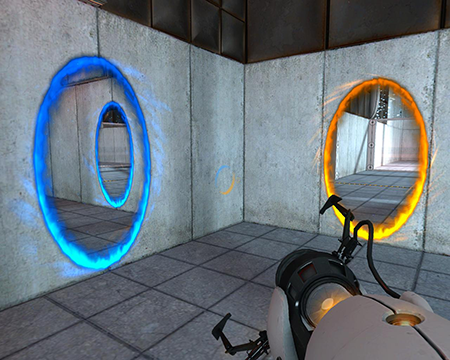The notion that playing video games is for the intellectually idle is widely held but might not be accurate. Research suggests that certain types of game play can in fact strengthen a range of cognitive, critical thinking and reasoning skills, according to Dr Byron Bunt of the North-West University’s (NWU) Faculty of Education.
These skills include the ability to make inferences and evaluate arguments, work accurately and systematically and apply logic and clarity to the task at hand.
As part of his doctoral study, Dr Bunt investigated the value of a 13-week Puzzle Video Game-Cognitive Enrichment Programme (PVG-CEP) as a developmental tool for critical thinking among first-year BEd students. For this purpose, he focused on a video game called Portal, where the player has to solve various puzzles.
Dr Bunt’s research involved testing the critical thinking skills of participants before and after taking part in the study. Initially, none of the participants excelled in the application of critical thinking skills and it was only after the PVG-CEP intervention that differential growth could be noticed.
“My findings suggest that the cognitive skills of players will grow in relation to the level of their exposure to these games,” says Dr Bunt. He explains that the acquired skills appeared to be “fragile”, meaning they will diminish without practice. Thus, the more practice participants were to have, the greater their progress is likely to be towards becoming advanced and master thinkers.
From gamer to educator to researcher
Dr Bunt, a history lecturer, says his fascination with history was inspired by gaming and specifically by playing Age of Empires, a series of historical real-time strategy video games.
“When I discovered Portal and started playing it, I immediately knew that it could add value since it really tested my thinking. It wasn’t long afterwards that I decided to use the game in an experiment to see if it could grow thinking abilities among students,” he explains.
An advocate for blended learning, Dr Bunt believes that game-based learning and gamification are important teaching and learning tools.
Dr Bunt himself has been playing video games since he was four years old. Perhaps the time has come to think again about the effect that video games have on the brain.

Dr Byron Bunt.

A screenshot of the Portal video game.
